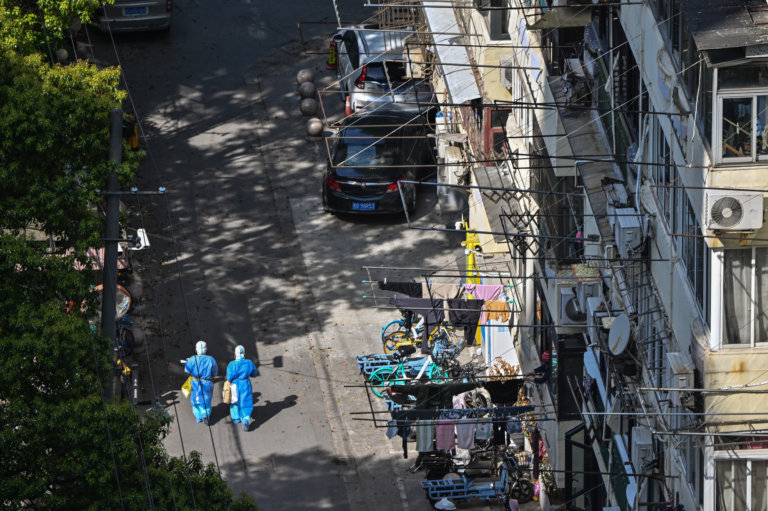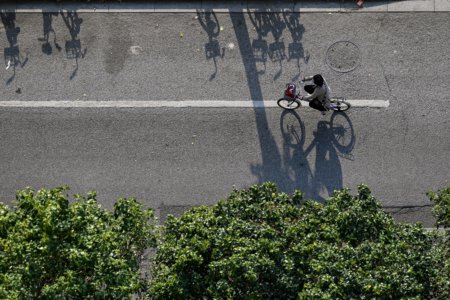
While China’s borders remain closed to most international students due to lockdown restrictions, volunteers from Fudan University, including 30 international students, were dispatched to help with epidemic prevention works and the delivery of basic necessities on campus.
This comes after Fudan’s campuses were put under closed-loop management following an uptick in COVID-19 infections in Shanghai, reported Xinhua News Agency.
On March 28, 2022, Shanghai began its most extensive lockdown in two years which included mass testing and to curb an outbreak of COVID-19 infections which had plagued the city, reported the Associated Press via The Diplomat.
China’s “zero-COVID” strategy meant that strict lockdown protocols were put in place, which included a stay-at-home order. Deliveries were left at checkpoints to ensure residents had no contact with the outside world. Offices that were classified under ”non-essential” services were closed down and public transport services were suspended.
Students at the university have been asked to stay in their dormitories and attend online classes to avoid spreading the virus.
The group of volunteers supply students on campus with meals and daily supplies, in addition to disinfecting buildings and coordinating nuclear acid testing, among others.
According to Xinhua, there are some 300 international students living on Fudan campuses.
The situation doesn’t seem to be handled well at all, and it must also be hard for the anti-epidemic workers who have to work in these conditions. Can imagine that their kindness and good energy is a ray of light for people stuck in these circumstances ❤️👏 (photo by @diegoshak) pic.twitter.com/5x9HlXm2gh
— Manya Koetse (@manyapan) March 27, 2022
Students use their volunteering experience to establish connections
Colombian student at Shanghai International Studies University, Liyicatalina Wuxu, did not think twice about signing up as an epidemic prevention volunteer for her dormitory building.
She is responsible for checking the number of students in the dormitory and register the antigen test results at 10 p.m. each night.
“As an international student, I feel deeply the determination and efforts of the Chinese government to control the epidemic,” Wuxu was quoted saying. “I also believe that my volunteer experience will be an unforgettable memory in my life.”
American student Lyu Jiaojie told Xinhua: “It is satisfying to help others and to feel needed.”
Statistics say there are some 200,000 foreigners working in Shanghai, and many expats have joined forces to combat the epidemic.
THREAD: 1) Shanghai has quickly become the epicenter of China’s worst coronavirus outbreak since 2020.
Many of its 25 million inhabitants — triple New York City’s population — are braving their third week in lockdown. https://t.co/sugqkAAErk pic.twitter.com/C9JitnxdRL
— Bloomberg (@business) April 18, 2022
How China’s lockdown restrictions affect students
While countries such as Australia and Japan have since eased travel restrictions to allow students to return, China remains firmly shut to most international students. Only students from selected countries have been greenlighted to return, including those from South Korea and Sri Lanka.
Many have complained about the poor quality of online learning, adding that they have had to endure attending classes at odd hours due to the time difference between their home countries and China.
Many students who remain locked out of the country have been campaigning for their return.
Last year, hundreds of Bangladeshi students reportedly staged a demonstration, forming a human chain outside the National Press Club in the country’s capital — Dhaka — in September, calling for their return to China.
More recently, Indian students held an online campaign to return to Chinese universities on Sunday using the #SaveIndianSudentsOfChina and #TakeUsBackToChina hashtags on Twitter. Students are hoping the relevant government authorities will facilitate their return to China.
Chinese nationals who have been issued a tourist visa to India will now have their visas suspended. The new mandate comes in the wake of some 20,000 Indian students being denied to return to China to pursue their studies, due to stringent COVID-19 pandemic measures in the country.










